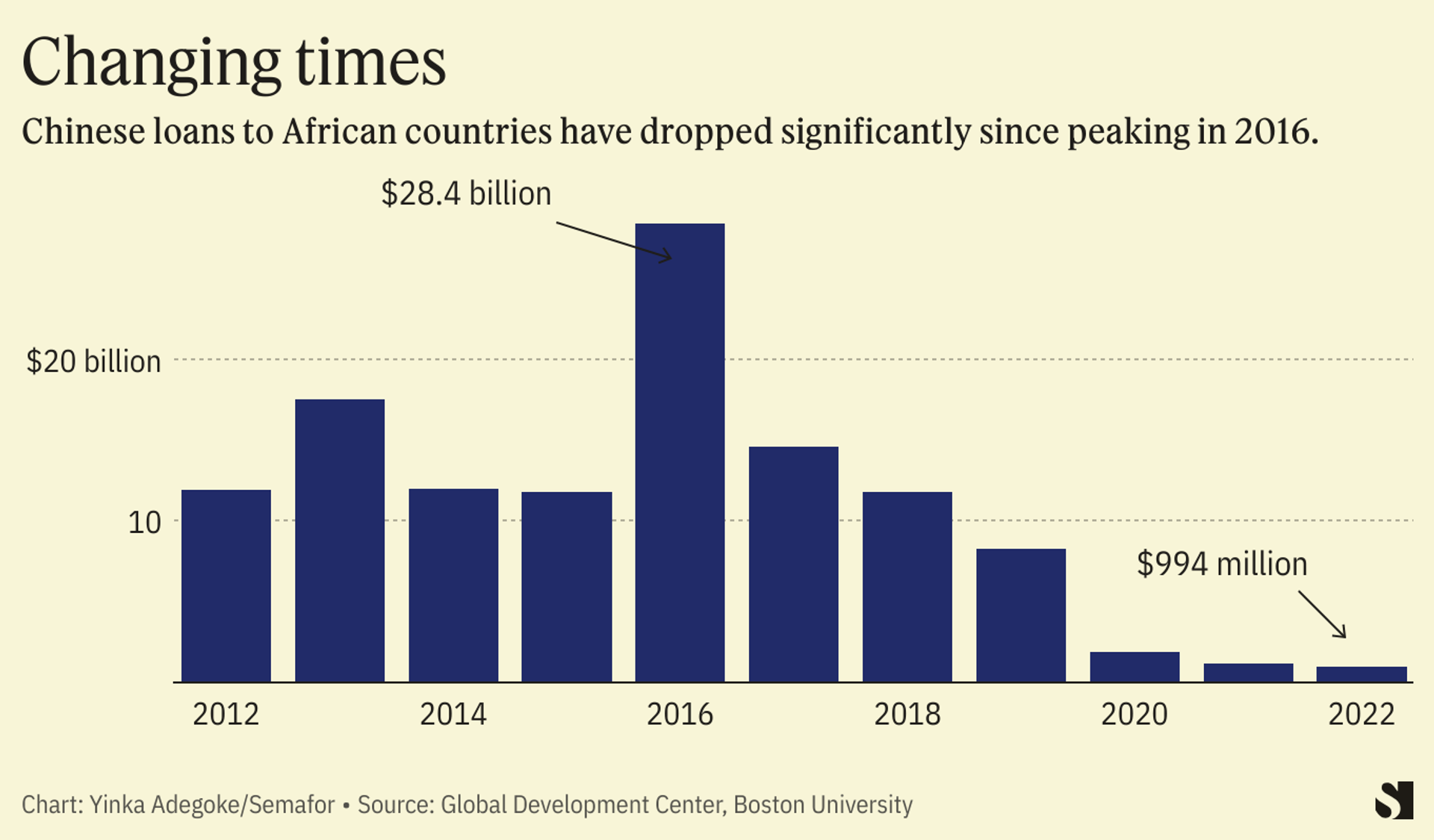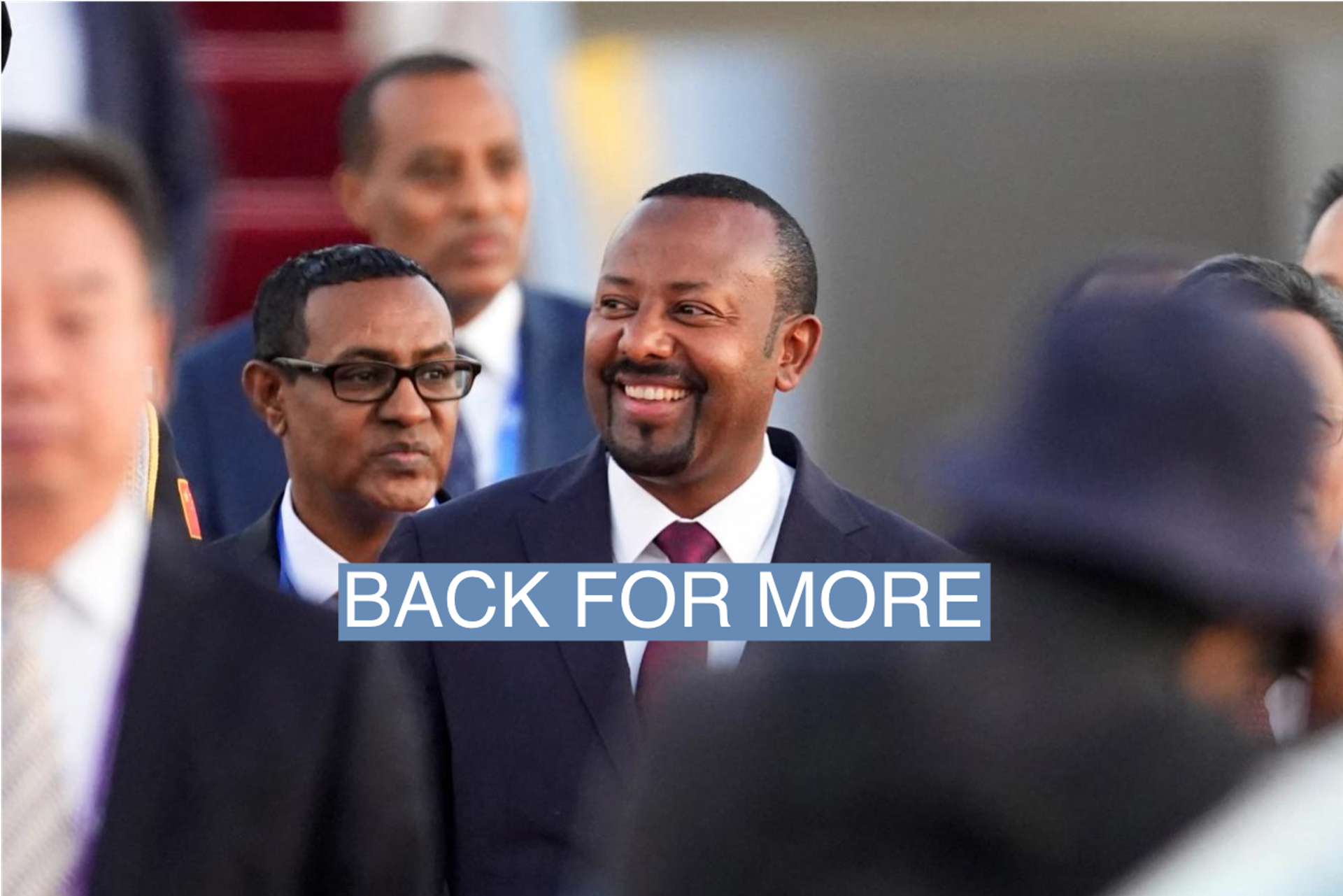The News
On the 10th anniversary of China’s Belt & Road Initiative (BRI), the Belt and Road Forum kicked off on Tuesday in Beijing with representatives from over 130 countries in attendance. Several African leaders are among them — including Kenya’s President William Ruto, Ethiopian Prime Minister Abiy Ahmed (pictured above), Congo Brazzaville President Denis Sassou N’guesso and Nigeria’s Vice President Kashima Shettima.
Kenya is seeking $1 billion in loans to complete stalled infrastructure projects, and also wants an extension on loan repayment terms to ease its public debt burden.
Ethiopia, which in August secured a temporary suspension of debt repayment for Chinese loans maturing in the 2023/2024 fiscal year, is keen on deepening its relationship with Beijing and will be joining the BRICS coalition of countries including China from Jan. 1.
Nigeria disclosed that it would use the forum to lobby investors to back various development projects in the country. Lagos state recently unveiled its Chinese-funded metro line to much local fanfare, but also concerns that Lagos doesn’t go the way of Addis Ababa by ending up with nonfunctioning train stock.
In this article:
Know More
The Belt and Road Initiative (BRI), once seen as the focal point of President Xi Jinping’s foreign policy, was the catalyst for massive infrastructure loans from China to African governments over the past decade. However, with mounting concerns on countries’ ability to repay the debts, criticism of what some have described as debt-trap diplomacy, and economic headwinds at home particularly in the property sector, China has significantly reduced lending to African countries in the past few years.
From a peak of $28.4 billion in 2016, China issued loans worth $994 million to African governments in 2022 - the lowest levels of Chinese lending to Africa since 2004. It also marked two consecutive years of under $2 billion in Chinese lending to African countries.

Martin’s view
The Belt and Road Forum will offer a great indicator of the future of China’s relationship with African countries, particularly when it comes to lending and infrastructure development. Western powers including the United States, which have been working to counter China’s influence on the continent, will be watching keenly.
But it will be a tall order for African countries to secure huge loans from China going forward, such as the $1 billion being sought by Ruto. Critics like China Africa Project’s Eric Olander described Ruto’s plan to call on the Chinese to help fix Kenya’s problems as a “longshot.” Olander argues China’s domestic politics and economy will not allow for a significant financing package “given the enormous difficulties many provinces are encountering.”.
However, as evidenced by its suspension of Ethiopia’s debt repayments, China might consider renegotiating terms to guarantee countries’ economic stability. Despite the decreased lending, China also remains well positioned to maintain strong partnerships with African countries.
Offering a glimpse into the future, researchers from Boston University’s Global China Initiative wrote in a September 2023 policy brief that future Chinese lending to Africa “could mean less large-scale loans over $500 million, more loans with smaller values under $50 million and loans with more beneficial social and environmental impacts.”
Room for Disagreement
China is well aware of claims from the United States and other western countries that the Asian giant is burdening African countries with large loans as part of a so-called debt trap. But it has pushed back at this narrative. This month a new report from the Institute of New Structural Economics at Beijing University tries to quantify how Chinese lending has boosted development outcomes in Africa. Among its findings it suggests that for every 1% increase in Chinese loans to African countries there was 0.176% to 0.3% increase in the country’s GDP.
“I cannot deny that the financing cooperation between China and Africa are facing some challenges or difficulties, because [of] some [countries] defaulting and the debt problem is in front of us,” said Wu Peng, director-general for the department of African affairs at China’s foreign ministry speaking at the launch of the report earlier this week, according to CNBC Asia.
